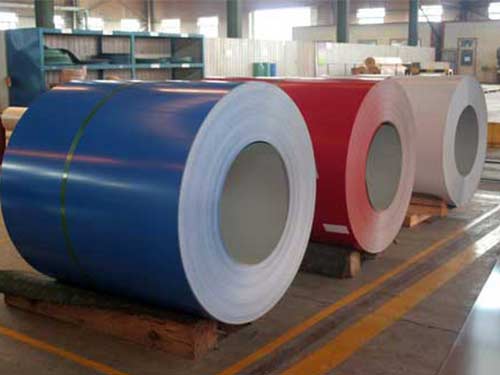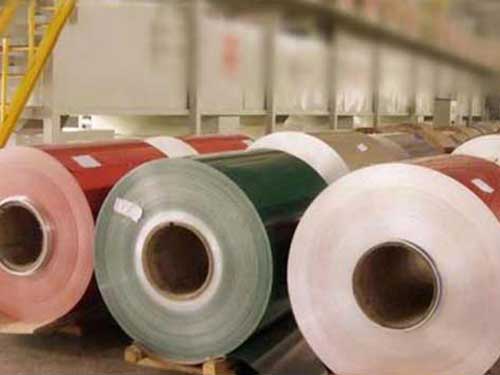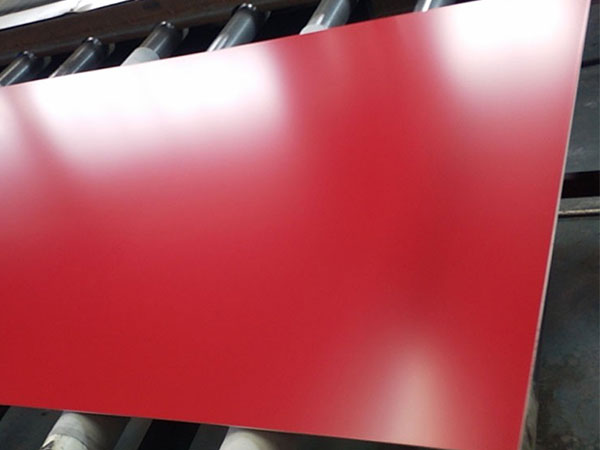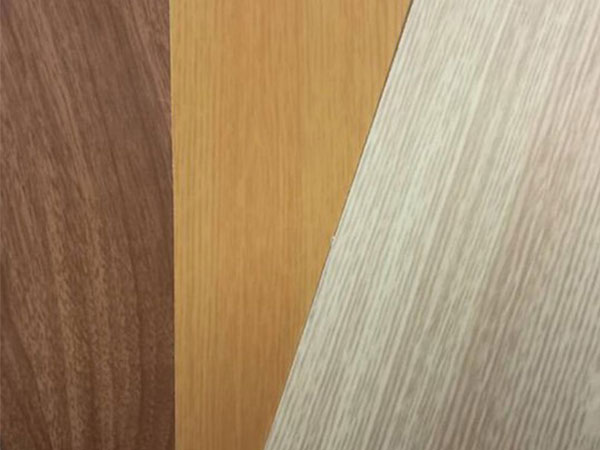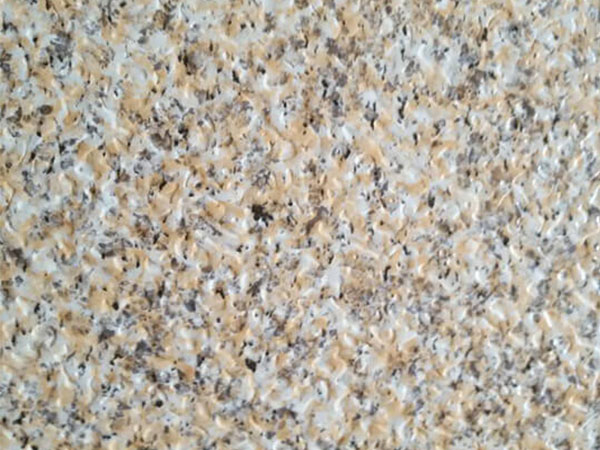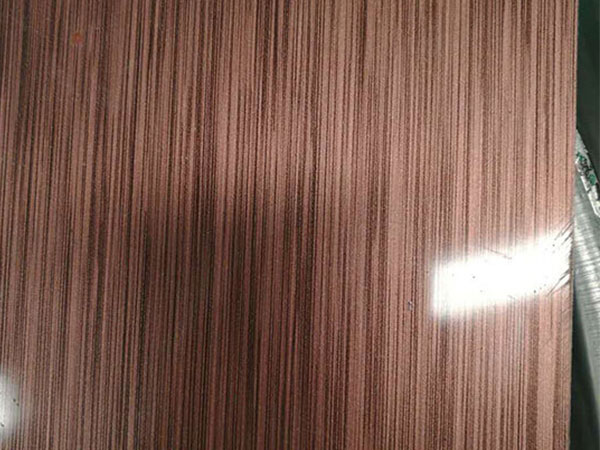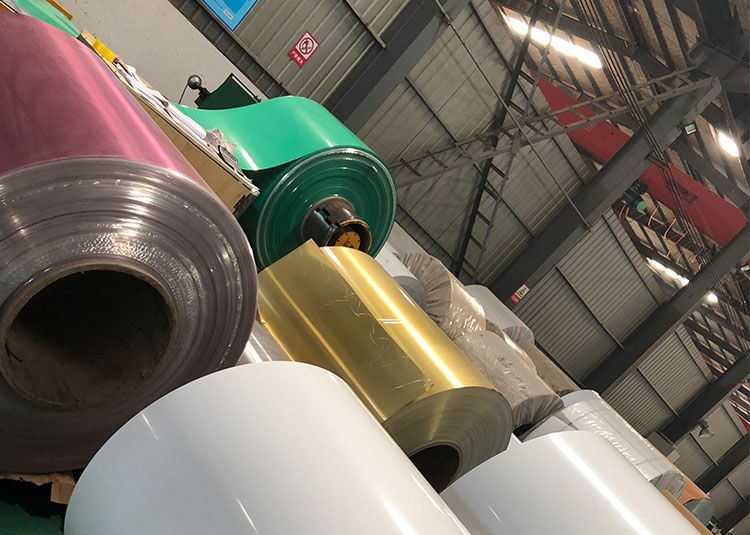In the ever-evolving landscape of architectural and industrial materials, PVDF coating colored Alloy 1100 aluminum coils is know as a paragon of performance and aesthetic appeal.
Alloy 1100: Purity Meets Malleability
Alloy 1100 aluminum is renowned for its exceptional purity, containing a minimum of 99% aluminum. This single fact establishes its core identity in the world of aluminum—soft, ductile, and characterized by excellent corrosion resistance. The alloy's chemical composition typically embodies:
Working with PVDF-coated Alloy 1100 aluminum coils presents a unique set of challenges and advantages. The 1100 alloy, being a pure aluminum, offers excellent formability and weldability, which is beneficial during fabrication. However, its inherent softness can sometimes pose difficulties during the coating process, requiring careful control of tension and temperature to prevent scratching or marring of the delicate PVDF layer. We've found that pre-treatment of the aluminum, focusing on surface cleanliness and achieving optimal surface energy, is crucial for achieving strong adhesion and long-lasting durability of the PVDF coating. Even minor inconsistencies in the pretreatment stage can lead to coating defects like blistering or peeling, highlighting the need for meticulous quality control throughout the production line.
Furthermore, the PVDF coating itself, while offering exceptional weather resistance and color retention, necessitates precise control during the application process. Variations in the coating thickness can affect the final aesthetic appearance and performance characteristics, potentially leading to uneven color or reduced UV protection. We've seen firsthand how even seemingly minor adjustments to the coating parameters, like the spray nozzle pressure or curing temperature, can significantly impact the final product’s quality. This underscores the importance of continuous monitoring and calibration of the coating equipment and the need for skilled operators with a deep of PVDF chemistry and application techniques to consistently produce high-quality PVDF coated Alloy 1100 aluminum coils.
| Element | Content (wt%) |
|---|---|
| Aluminum | 99.0 min |
| Copper | 0.05 max |
| Iron | 0.95 max |
| Manganese | 0.05 max |
| Silicon | 0.40 max |
| Zinc | 0.10 max |
| Other | 0.05 max each, 0.15 max total |
This composition bestows excellent workability, which translates to superior formability when applied in coil form. However, the alloy’s strength is naturally lower compared to other series because it is essentially non-heat-treatable.
The Magic of Temper: From Annealed to Cold Worked
Given Alloy 1100’s soft nature, tempering commonly involves cold working with no heat treatment. Temper designations such as O (annealed) and H14 (half-hard) affect the mechanical properties and starting structure for PVDF coating adhesion:
- O temper - Annealed: Maximum ductility, ideal substrate for extrusion and deep drawing but comparatively lower yield strength (~35 MPa).
- H14 temper - Half-Hard: Partial strain-hardened, balancing investigations pinpoint yield strength upwards of 60 MPa; enhances rigidity while maintaining decent forming traits.
These tempering conditions significantly influence the flatness, surface uniformity, and ultimately, the uniformity of PVDF application.
Why PVDF Coating on Alloy 1100 Aluminum Coils?
Polyvinylidene fluoride (PVDF) coating sets the benchmark for longevity and resilience in finish applied to aluminum coils. By applying a thin but robust layer of PVDF colored coating on Alloy 1100 substrate, manufacturers unlock an amalgam of benefits:
- Weather Resistance: PVDF exhibits extraordinary resistance to UV radiation and extreme environmental conditions, diminishing chalking and fading often witnessed in lesser coatings.
- Chemical Resistance: It withstands aggressive industrial pollutants and oxidation effortlessly.
- Color Stability: Offers superior color retention, ensuring architectural consistency across decades.
- Scratch and Abrasion Resistance: The film structure reduces surface damage over handling, installation, and cleaning routines.
Its wide color gamut, reaching RAL standards, makes installation in conspicuous exterior applications both decorative and durable.
Technical Parameters of PVDF Coated Colored Alloy 1100 Aluminum Coil
| Parameter | Specification |
|---|---|
| Thickness | 0.2 – 2.0 mm |
| Width | 600 – 1600 mm |
| Coil weight | 3 – 10 tons |
| Paint thickness | Primer: 5 – 7 µm, Topcoat: 18 – 20 µm |
| Adhesion (Cross Cut, ASTM D3359) | Level 5B (no peeling) |
| Bend test (number of standard springs, ASTM D4145) | ≥ 180° Radius without coating crack |
| Pencil hardness (ASTM D3363) | 5H – 6H |
| Glossiness | 20% - 90% (adjustable) |
| Color Range | Custom RAL compatible |
These parameters guarantee the coil's readiness for large-scale manufacturing lines, flawlessly integrating into cladding, roofing, photovoltaic frames, and other intricate design structures.
Implementation Standards
Meeting well-established standards assures supply chain coherence and product trustworthiness. The production of PVDF coating colored Alloy 1100 coils aligns frequently with these protocols:
- Aluminum Alloy Standard: ASTM B209, GB/T 3190-2008
- Coating Standard: AAMA 2605 (One of the toughest in the industry for painted metal finishes)
- Surface Quality: ISO 7599, 9211
- Environmental Compliance: RoHS, REACH regulations for chemical safety and lead-free coatings
Production and Quality Control: Steps to Excellence
The manufacturing synergy involves precision coil cleaning, oxide pretreatment for adhesion promotion, followed by the PVDF coating application in multiple paint layers baked at approximately 230°C to form a seamless bond and achieve ideal finish hardening.
Quality control modules involve meticulous inspections via gloss meters, crosshatch tape adhesion tests, bending flexibility screenings, and weathering simulation tests. This intensity ensures every coil leaving the line meets or surpasses client specifications.
In conclusion, PVDF coating colored Alloy 1100 aluminum coils reconciles material purity, forming ease, protective enhancements, and aesthetic adaptability to serve multi-dimensional industrial and architectural demands. Their distinct chemical characteristics, tempering strategies, coating technologies, and comprehensive quality align flawlessly with modern engineering challenges. Choosing these coated coils translates into retaining structural integrity, dazzling visual appeal, and enduring climate resistance across projects spanning from bespoke buildings to mass infrastructure work.
Make the intelligent coating choice—choose PVDF coated Alloy 1100 aluminum coil for unmatchable quality and reliability in decorative and protective applications.


